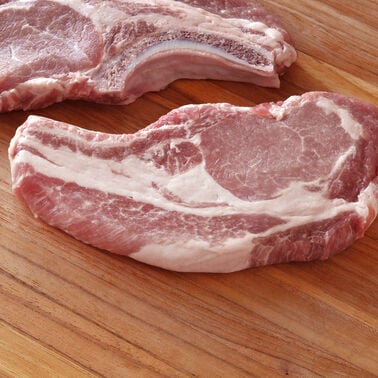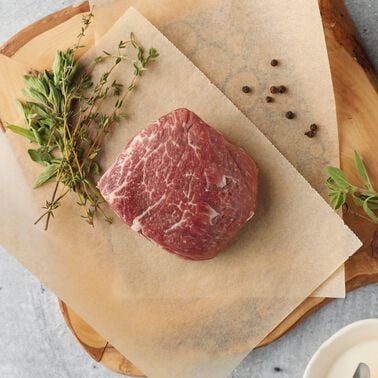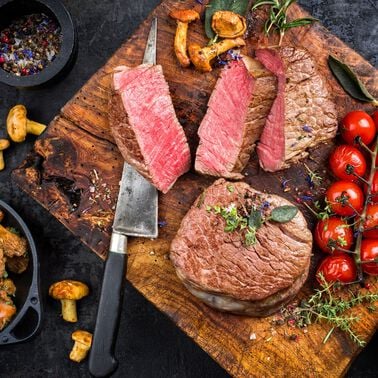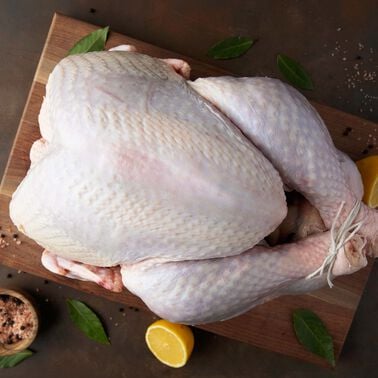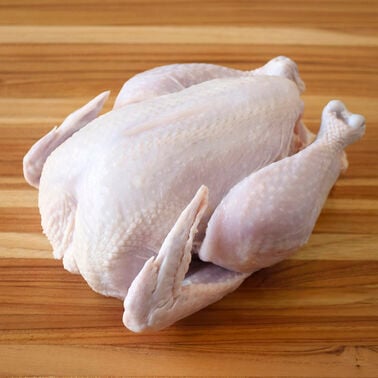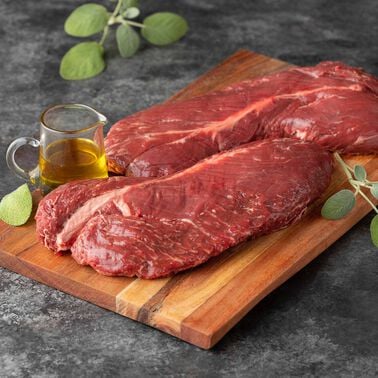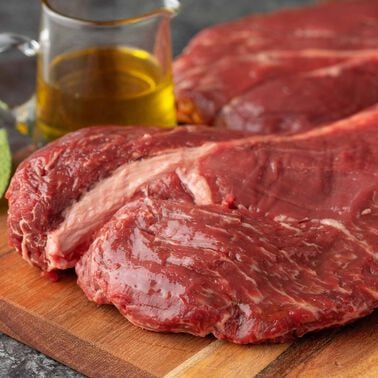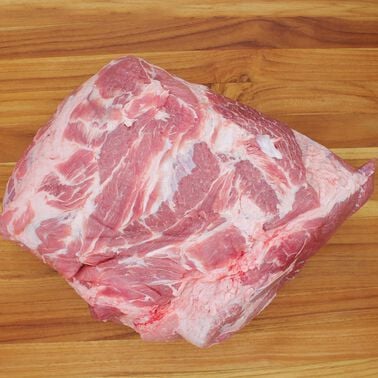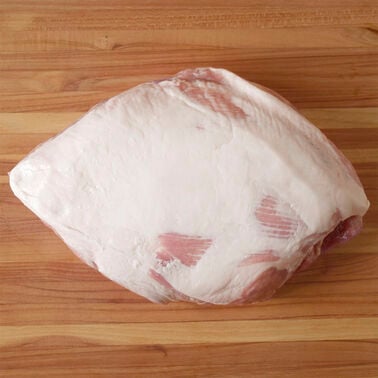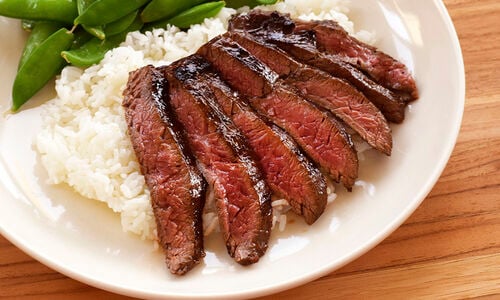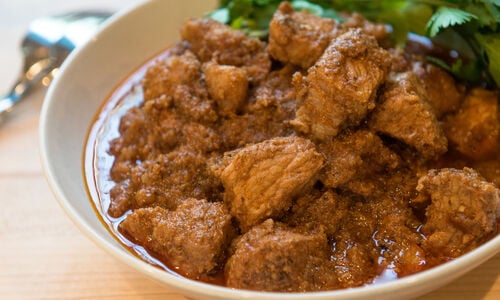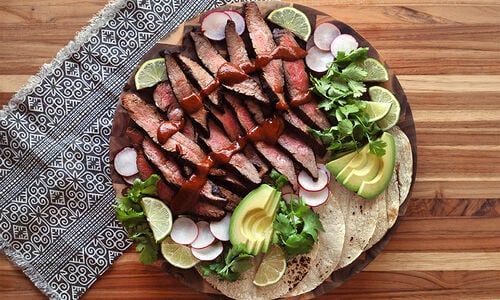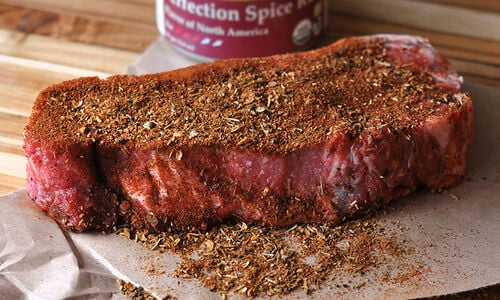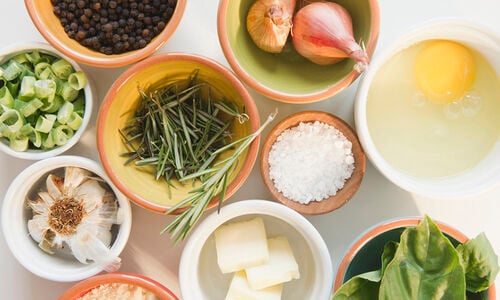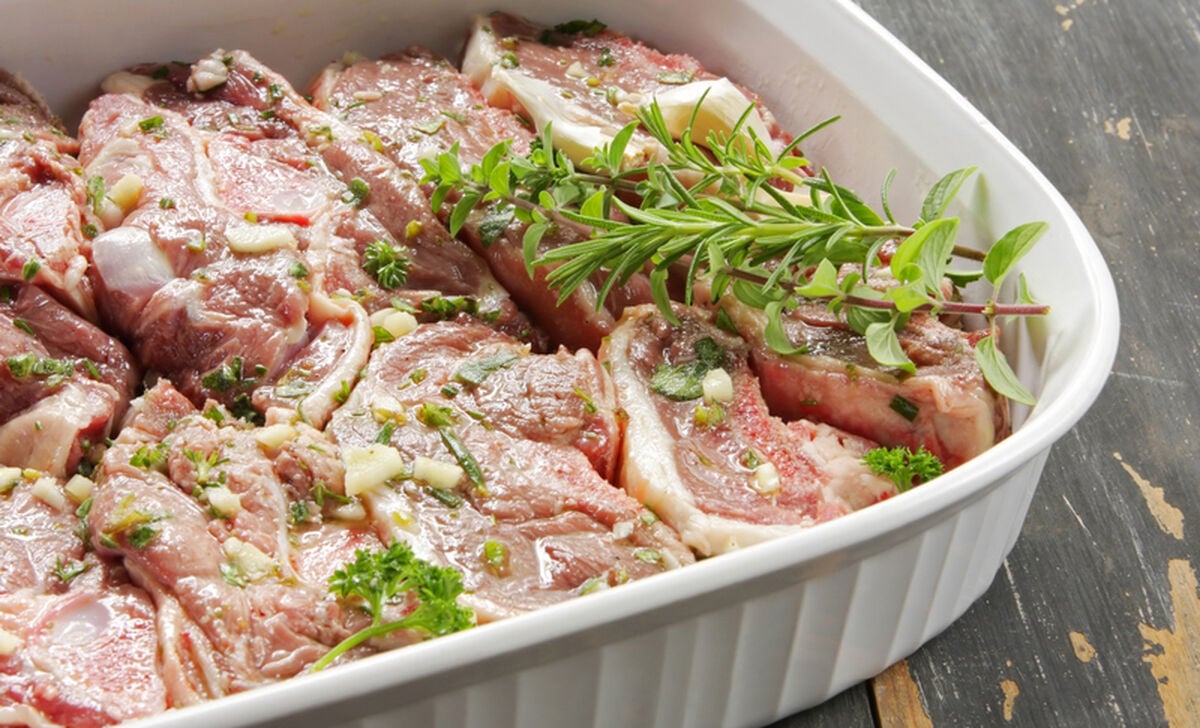
Triple Threat
A great marinade is carefully balanced and made of three basic components – acid, fat and seasoning. Acids, such as wine, vinegar, citrus juice, buttermilk, and enzyme-rich fruits like papaya or pineapple, work to soften the meat’s surface by weakening proteins allowing for slight absorption of flavoring. They also help to inhibit carcinogenic effects from grilling and roasting – think of acids like ‘free radicals’ for meat. Use them sparingly for best results. Fat, such as olive oil, duck fat, coconut milk, or even yogurt, act as moistening agents, flavor enhancers, and carriers of fat-soluble flavor compounds in certain herbs and spices. Seasonings impart flavor and often help with carmelization. Some common marinade seasonings are spices, herbs, soy sauce, sugar, and aromatic vegetables such as garlic, onions, or celery, and chiles. Acids, fats, and seasonings not only work well together but they also enhance each other’s functions when used in the right ratios.
Tall Tale of Tenderizing
A common albeit old-school cooking myth is marinating tenderizes tough cuts of meat. In order to tenderize meats you must break down the muscle tissue and collagen fibers. Although acids used in marinades do help to weaken collagen and muscle tissue, the effect is limited to the surface only. And if you expose meat to acid for too long, you’re only making the outer layer of meat mushy, not tender. Acid-laden marinades should be used for quick-soaks only and if you’re concerned about tenderness we’d recommend brining or simply starting with a naturally tender cut.
Storing
You should always use a covered non-reactive vessel for meats and poultry while marinating. Avoid aluminum containers or foil at all costs, as they’ll have a chemical reaction with your marinade causing discoloration and metallic or bitter flavor. A glass or Pyrex bowl sealed with plastic wrap works well for chunks of meat or small cuts such as tenders. For larger cuts, like steaks, chops or breasts use a shallow baking dish large enough to hold all pieces in a single layer. If you’re marinating a whole roast or bird an extra large re-sealable zipper bag with the air squeezed out works well and makes turning a breeze. For food safety, always marinate in the refrigerator. You can remove the marinating meat up to 1 hour before cooking to take the chill off.
Get Creative!
Marinating is a fantastic way to experiment with global cuisine while still using cooking techniques you’re familiar with. Step out of your cooking comfort zone and liven up your routine by adding a marinade to your favorite meat before throwing it on the grill, pan-roasting, or broiling. It’s the perfect chance for you to play with ingredients that are new to you or flavors you may find to be exotic.
For example, if you like…
- Thai, try using coconut milk, galangal, lemongrass, purple basil, or chiles in your marinade.
- Indian, experiment with yogurt, lime juice, turmeric, coriander, curry, or mustard seeds.
- Japanese, play around with sake, mirin, ginger, dried shiitakes, or shiso.
- Mexican, try lime, garlic, cilantro, cumin, or achiote paste.
- Vietnamese, check out fish sauce, rice vinegar, sriracha, green peppercorns, or anise seed.
- North African, experiment with lemon juice, honey, onion, cardamom, fenugreek, cinnamon, or allspice.
Quick Tips
- Marinades are great for thin cuts of meat such as single-cut chops, steaks, breasts, and small birds as well as meat cut into chunks or slices for use in kabobs, satays, and stir-fry.
- For thicker cuts of meat or large whole birds, try brining or dry rubs instead.
- NEVER use a marinade that has been in contact with raw meat as a sauce. If you want to have a compatible sauce, set aside some of your marinade beforehand then reduce over a low flame to thicken.
- NEVER marinate meat at room temperature for more than 1 hour.
- Marinades are excellent for grilling just be careful of flare-ups.
- Sugar and honey are great marinade add-ins. Not only do they provide flavor but they also facilitate carmelization which gives an extra layer of flavor.

